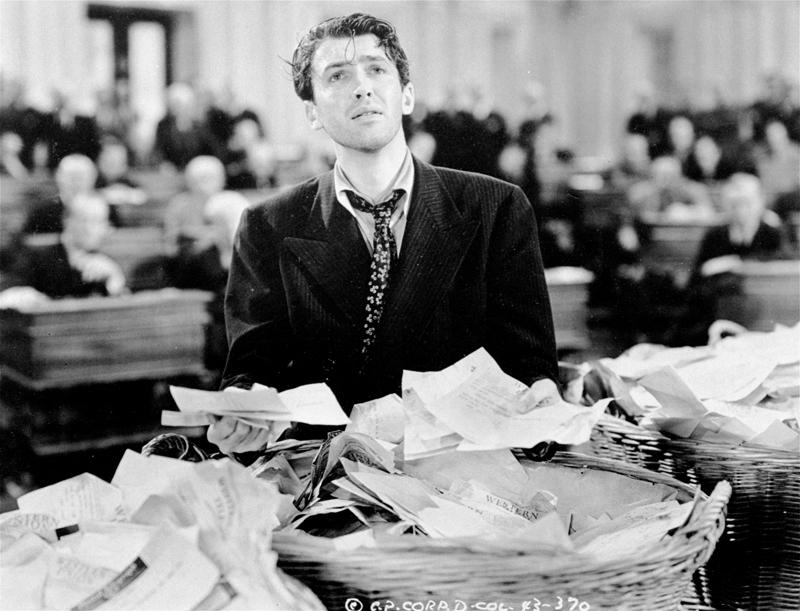The veto by a minority of U.S. senators of legislation to plug the loopholes in our system of background checks for gun buyers was very bad news about American politics.
But it did at least give me an answer to a question I’ve been asking for a long time.
Defenders of the filibuster rule, which gives 41 senators the ability to block bills supported by a majority of the Senate — and usually by a majority of the country as well — claim this is an important protection for vulnerable minorities threatened by action that disregards their basic rights.
For decades I have been asking for an example of a minority that was actually protected by the filibuster.
Historically, of course, its role was exactly the opposite — to prevent the national government from coming to the aid of African-Americans suffering vicious discrimination, largely, but not entirely, in the South.
Since then, it has been used by both parties to block legislation with which they disagree.
Justifying this systematic flouting of the basic principles of democracy — majority rule — is very hard to do as a general operating procedure. So the mythical abused minorities have been pressed into rhetorical service in the filibuster’s defense.
But now, after the Senate “defeated” effective background checks on gun purchasers by a vote of 55 in favor and 45 against, we have an identifiable small group whose rights have been preserved in the face of an oppressive majority: people who are seriously mentally unstable, and or particularly violence prone, who want to be able to buy guns that can fire large amounts of bullets very rapidly without the need to reload. (The final vote was listed as 54 yes and 46 no because Majority Leader Harry Reid switched his vote to no at the end of the roll call to reserve his right to bring it up again. That is now unlikely.)
It is probably true that the tea party-dominated House Republican majority would have rejected that bill even if majority rule did prevail in the Senate. Republicans there opposed it by a vote of 41 to 4, while the Democrats and the two independents who vote with the Democrats to organize the Senate supported it by 51 to 44.
But it would have been good for the country for the House to have been forced to deal with it, giving public opinion a chance to make itself felt.
(Drawing on my 32 years of experience in the House, I can assure those reading this that a large number of representatives are grateful that the filibuster spared them from having to take a stand on this important issue.)
There are other pro-filibuster arguments.
One is that the 60-vote rule protects the country against hastily adopted laws. The second is that it ensures that people who live in sparsely populated areas are not crushed by the unthinking urban masses.
Both of these claims are refuted by our Constitution.
Nothing becomes a law in America until it is passed by both houses of Congress and signed by the president, or passed by 2/3 of both houses without a signature.
At any given time, the officials making this decision have been elected in three separate elections over six years. A party or ideological grouping has to have won at least two of the past three elections to have a governing majority.
Checks and balances do work to prevent the adoption of laws in unthinking haste.
And the Constitution also provides people living outside major population centers an influence well beyond their simple numbers. The two senators per state provision — the only explicitly unamendable part of that document — already gives the residents of the smallest states a way to frustrate majority sentiment in the country with which they disagree.
That over-representation of geographically scattered votes in the Senate showed up in the background check vote.
The four Democratic senators who opposed it represent Montana, Alaska and North Dakota, with populations that give them one seat each in the House, and Arkansas, which has three. Those four Senators canceled out the pro-background check votes of the senators from New York and California, which have 70 votes, combined, in the House.
There are several reasons our government does not respond better to problems the public wishes to see addressed. Some are hard to fix. Providing majority rule in the U.S. Senate is not one of these. And until it is, by an amendment to the Senate’s rules, we will see more examples like gun control, where the score is filibuster 1 and democracy 0.
Barney Frank is a retired congressman and author of landmark legislation. He lives in Ogunquit and Massachusetts.
Send questions/comments to the editors.



Success. Please wait for the page to reload. If the page does not reload within 5 seconds, please refresh the page.
Enter your email and password to access comments.
Hi, to comment on stories you must . This profile is in addition to your subscription and website login.
Already have a commenting profile? .
Invalid username/password.
Please check your email to confirm and complete your registration.
Only subscribers are eligible to post comments. Please subscribe or login first for digital access. Here’s why.
Use the form below to reset your password. When you've submitted your account email, we will send an email with a reset code.